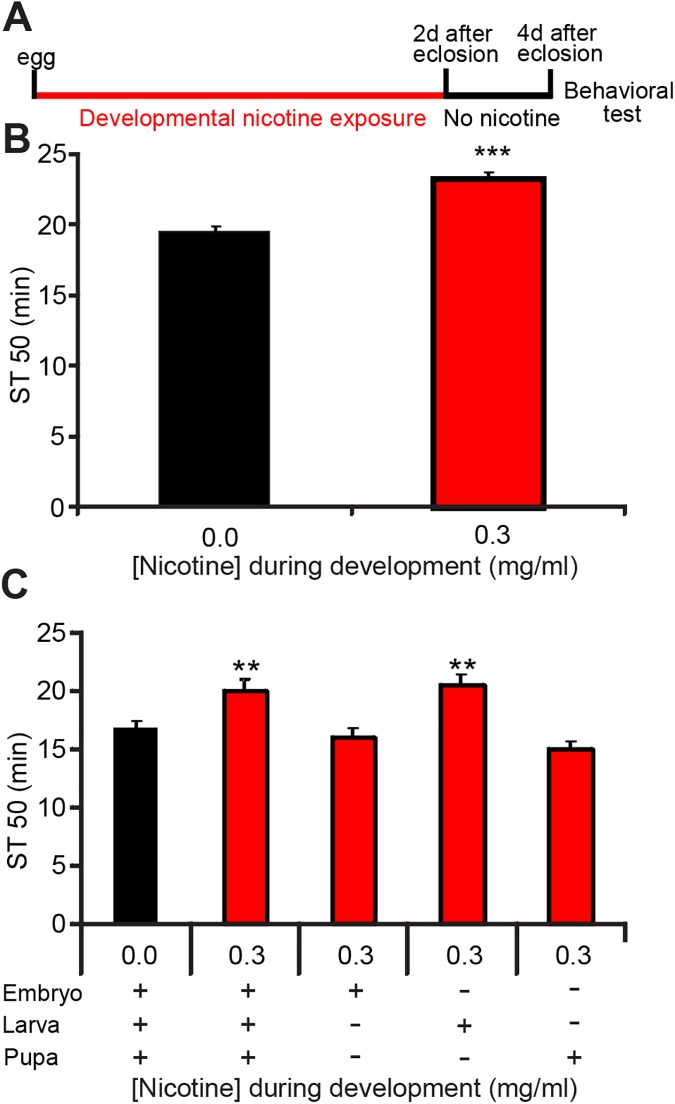Fig 4. Nicotine-reared flies have decreased sensitivity to the sedative effects of ethanol.
Flies were reared on control or nicotine food during different developmental stages and males collected 2 days after eclosion and transferred to vials with control food. Flies were tested 2 days later on the LORR assay for ethanol sensitivity. (A) Flies reared on 0.3 mg/ml nicotine food showed decreased sensitivity to the effects of acute ethanol exposure in the loss-of-righting-reflex (LORR) assay compared to control (0.0 mg/ml nicotine). (Student's t-Test, n ≥ 25 samples per condition from n = 6 independent experiments; each sample is a vial with 14–21 males). (B) Flies reared on 0.3 mg/ml nicotine food either during "All development" or during Larva displayed reduced sensitivity to the effects of acute ethanol exposure in the LORR assay compared to control. Nicotine exposure during Embryo or Pupa had no effect (ANOVA followed by Dunnett's, n ≥ 20 samples per condition from n ≥ 4 independent experiments; each sample is a vial with 16–21 males).

